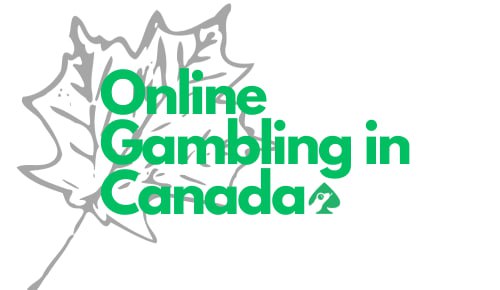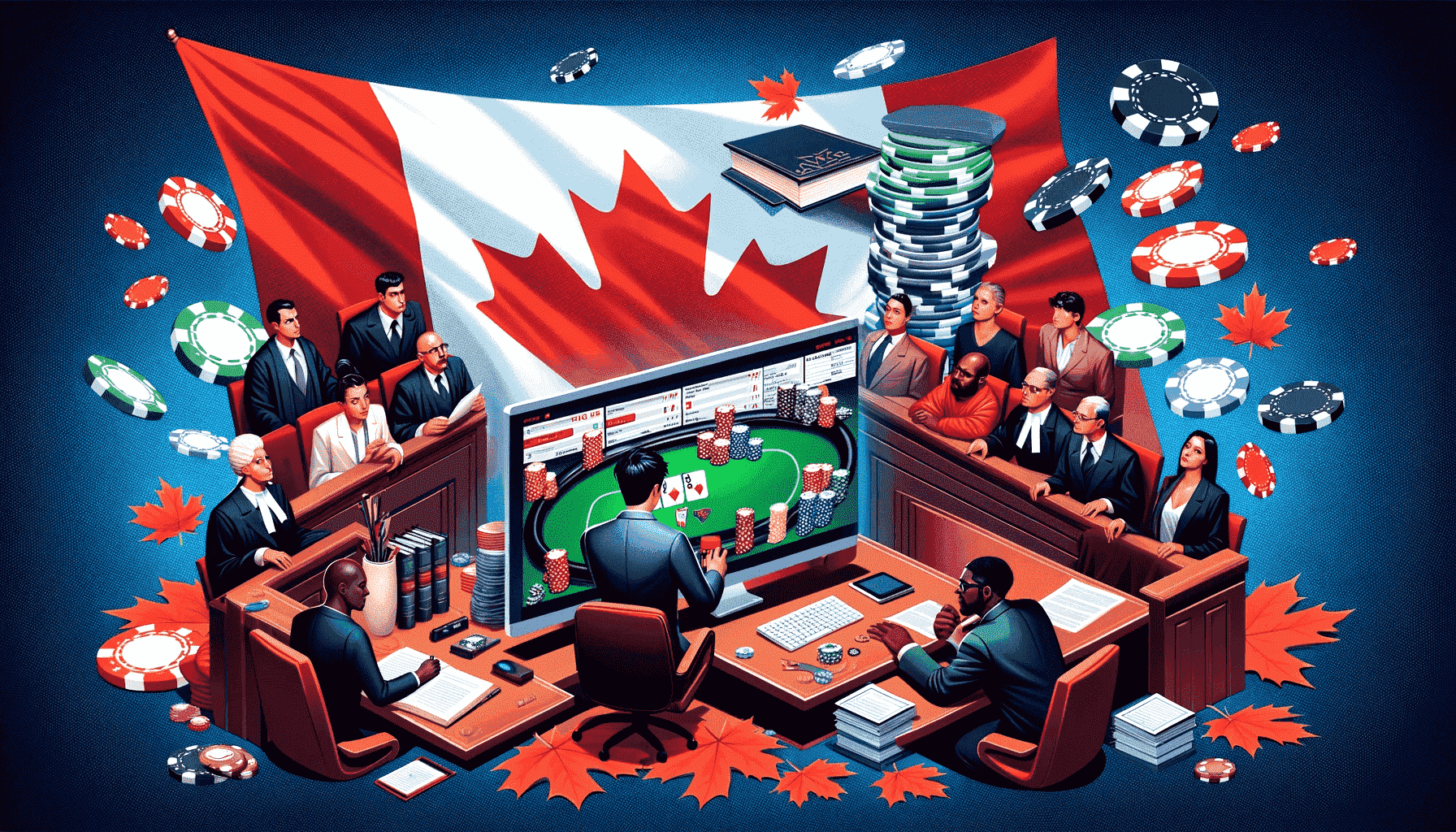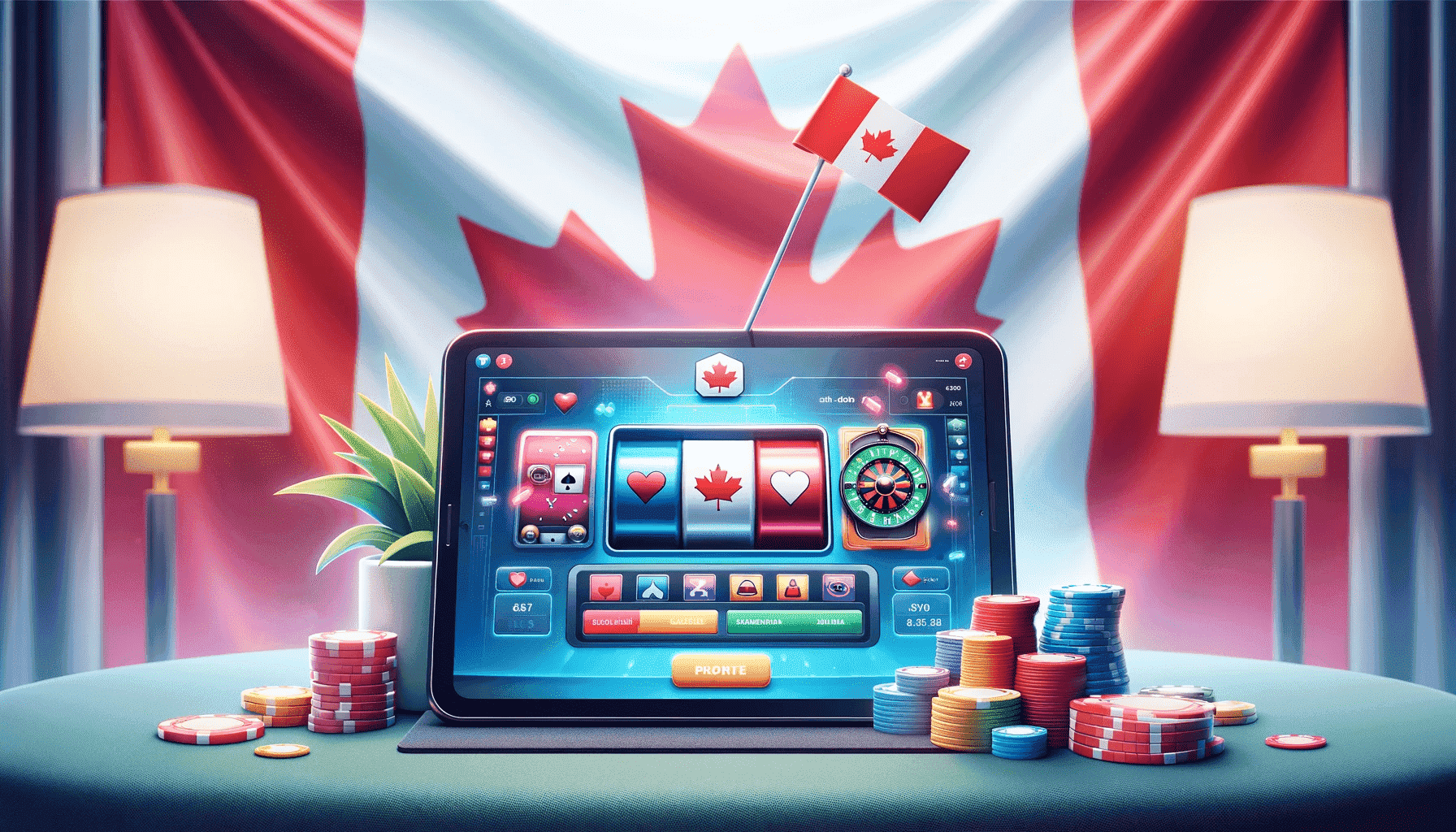
Legality of Online Gambling in Canada
In recent years, online gambling has surged in popularity across Canada, becoming a prominent part of the digital entertainment landscape. This rise has brought with it a myriad of questions regarding the legality of such activities. Navigating the online casino legal framework in Canada can be complex, with laws varying across provinces and territories. The question of whether casinos are legal in Canada, especially in the online domain, is not just a matter of national law but also involves provincial jurisdictions. This article aims to delve into the intricacies of online gambling laws in Canada, providing clarity on what is and isn’t permissible. It seeks to explore the legal status of online casinos in Canada, offering readers a comprehensive understanding of where Canadian law stands on this increasingly popular form of entertainment. This exploration is essential not only for potential players but also for anyone interested in the legal landscape of digital gambling in Canada.
Historical Context of Gambling Laws in Canada
Canada’s gambling landscape has undergone substantial transformations through the years, both in terms of physical establishments and online platforms. Here’s a brief overview of the key milestones in Canada’s gambling evolution:
- July 1st, 1767: Quebec hosts its first major horse race, marking the beginning of organized gambling in Canada.
- 1892: The Criminal Code of Canada is introduced, outlawing all forms of gambling.
- 1900: Amendments to the law permit bingo and raffles for charitable reasons.
- 1925: Further amendments allow gambling at fairs and exhibitions.
- 1969: The Criminal Code is changed to legalize lotteries.
- 1970: Canadian provinces gain the authority to manage their gambling activities.
- 1974: Canada conducts its first national lottery to fund the Montreal Olympics.
- 1985: The legalization of casinos and certain types of sports betting occurs.
- 1989: Winnipeg opens Crystal Casino, Canada’s inaugural casino.
- 1994: The emergence of online casinos, accessible by Canadian residents despite technical illegality.
- 1996: Establishment of the Kahnawake Gaming Commission under the Kahnawake Gaming Law.
- 2021: The Canadian Criminal Code is revised to permit single-event sports betting.
- 2022: Ontario pioneers regulated online gambling within Canada, issuing licenses to casino and sportsbook operators.
This timeline highlights Canada’s journey from strict gambling prohibitions to a more open and regulated gambling environment, reflecting changing attitudes and economic considerations.
Federal and Provincial Gambling Regulations
Gambling regulation in Canada is a nuanced affair, involving both federal and provincial oversight, leading to varied legal landscapes across the country. At the federal level, the Canadian Criminal Code sets the broad legal framework for gambling. It prohibits any form of gambling or betting not licensed or managed by the government. However, the federal government delegates much of the gambling regulatory authority to provincial governments, allowing for regional autonomy.
This provincial autonomy in gambling regulation means that each province can determine the legality and structure of gambling within its borders. Consequently, there’s considerable variation in how gambling, especially online gambling, is managed across provinces. This leads to questions such as “Is online gambling legal in Canada?” or “Are online casinos legal in Canada?” having different answers depending on the region.
Alberta
- The legal gambling age is 18.
- Offers various forms of legal gambling, including casinos, horse racing, and lotteries.
- Online gambling is legal through Play Alberta, a government-regulated site.
British Columbia
- The minimum age to gamble is 19.
- Offers legal gambling options like casinos, horse racing, and lotteries.
- Online gambling is available through the British Columbia Lottery Corporation’s PlayNow platform.
Manitoba
- The legal age for gambling is 18.
- Provides access to casinos, horse race betting, and lotteries.
- Online gambling is legal and regulated through PlayNow, operated by the British Columbia Lottery Corporation.
New Brunswick
- Gambling is legal for individuals aged 19 and above.
- Offers casinos, horse racing, and lottery options.
- Does not have a provincially regulated online gambling platform, but residents can access offshore sites.
Newfoundland and Labrador
- The legal gambling age is 19.
- Gambling options are more limited, mainly focusing on lottery and bingo.
- No provincially regulated online gambling platforms, but offshore online gambling sites are accessible.
Nova Scotia
- Individuals aged 19 or older can legally gamble.
- Offers casino gaming, lotteries, and video lottery terminals.
- No specific provincial online gambling platform, but offshore sites are accessible.
Ontario
- The minimum age for gambling is 19.
- Features casinos, horse racing, and lotteries.
- Online gambling is regulated with the launch of Ontario’s open iGaming market, including various licensed online casinos and sportsbooks.
Prince Edward Island
- Legal gambling age is 19.
- Offers limited gambling options, primarily through lotteries and charitable gaming.
- Does not have a provincially regulated online gambling platform; offshore sites are available.
Quebec
- The legal age for gambling is 18.
- Provides a range of gambling options, including casinos and lotteries.
- Online gambling is available and regulated through Loto-Québec’s Espacejeux.
Saskatchewan
- Individuals must be 19 or older to gamble.
- Offers casinos, lotteries, and horse racing.
- Does not have a provincially regulated online gambling platform; residents typically use offshore gambling sites.
Yukon
- The legal gambling age is 19.
- Primarily offers lotteries and charitable gaming.
- No provincially regulated online gambling platform; offshore sites are accessible.
Northwest Territories
- The legal gambling age is 19.
- Gambling options are mainly limited to lotteries.
- No specific online gambling regulations; residents use offshore sites.
Nunavut
- The minimum age to gamble is 19.
- Offers limited gambling options, mostly lotteries.
- No provincially regulated online gambling; offshore sites are accessible.
Regulatory Framework for Gambling in Canada
In Canada, operating a gambling establishment requires a license, ensuring legal compliance and adherence to regulations. Provincial governments are responsible for issuing these licenses for online gambling, which imposes stringent regulatory standards on operators. While holding a license isn’t a guarantee of safety, it does signify that the operator upholds the security and operational standards mandated by local regulatory authorities.
When visiting either a brick-and-mortar betting venue or an online gambling platform, encountering oversight by any of the following regulatory bodies indicates that the establishment is legal and adheres to safety standards:
- Alcohol and Gaming Commission of Ontario (AGCO) and iGaming Ontario
- Kahnawake Gaming Commission (KGC)
- Gaming Policy and Enforcement Branch (GPEB) in conjunction with the BC Lottery Commission
- Alberta Gaming and Liquor Commission (AGLC)
These authorities ensure that gambling activities within their jurisdictions comply with legal and ethical standards, providing a safer gambling environment for Canadian players.
Role of Licensing and Regulatory Bodies
In Canada, the licensing processes for online casinos vary by province, but all share the common goal of ensuring fair and legal operations. Provinces that allow online gambling have set up regulatory bodies to oversee and license these activities. For example, in British Columbia, the British Columbia Lottery Corporation manages and licenses online gambling. Similarly, Ontario has established the Alcohol and Gaming Commission of Ontario (AGCO) for this purpose.
The Kahnawake Gaming Commission, located in the Mohawk Territory of Kahnawake near Montreal, is one of the well-known regulatory bodies in Canada. It grants licenses to online casinos and sportsbooks, operating under its jurisdiction. While its legal standing in Canadian law is unique, it has become a respected body in the online gambling community.
Licensing is crucial for player safety and legal compliance. Licensed online casinos must adhere to strict standards and practices, ensuring fair play, responsible gambling, and the protection of player information. These regulations are essential for maintaining the integrity of online gambling in Canada.
Responsible Gambling Practices in Canada
In Canada, the licensing of casinos and sports betting sites is a key indicator of their commitment to responsible gambling. This is because licenses are only granted to those that meet the stringent criteria set by regulatory bodies. For instance, the Alcohol and Gaming Commission of Ontario (AGCO) and similar authorities in other jurisdictions, like the UK Gambling Commission (UKGC) in the United Kingdom, mandate that gambling sites provide adequate resources for responsible gambling.
Leading online casinos typically have dedicated sections on their platforms addressing safe gambling. These sections are rich in resources, offering guidance on how to manage gambling budgets effectively and recognize the early signs of problem gambling. These casinos also incorporate practical tools to aid responsible gambling. These tools include options for self-exclusion, where players can voluntarily ban themselves from playing for a set period, self-assessment quizzes to help players gauge their gambling habits, and the ability to set personal limits on deposits, bet sizes, and time spent betting.
Moreover, all legal gambling applications in Canada are required to provide links or information about external organizations and charities that support safe gambling. This approach ensures that players have access to comprehensive resources to help maintain control over their gambling behaviors, promoting a safe and sustainable gaming environment.
Practical Advice for Canadian Players
For Canadian players, ensuring legal and safe online gambling involves several key steps. First and foremost, players should verify that an online casino is licensed by a reputable regulatory body, such as their provincial authority or the Kahnawake Gaming Commission. Licensed casinos are more likely to offer fair games and secure financial transactions.
Players should also be aware of the gambling laws specific to their province, as online gambling legalities vary across Canada. Understanding these laws helps in choosing the right platform and avoiding legal issues. Furthermore, it’s important to engage with well-reviewed and reputable online gambling sites. Players should look for reviews and ratings from other users and independent gambling websites. These reviews often provide insights into the reliability and quality of the casino’s services.
Avoiding Illegal Casinos
In any industry, including online gambling, there are disreputable entities to watch out for. Thankfully, measures exist that make dishonest online casinos uncommon, but it’s still important to know how to identify and avoid them.
A key indicator of a casino’s legitimacy is its licensing status. A valid license from a recognized authority signifies that the casino adheres to regulatory standards and is trustworthy.
Additionally, online casino reviews are invaluable. Our review team conducts comprehensive assessments covering all aspects of an online casino, such as game variety, bonus offerings, payment methods, and the integrity of security and privacy practices. Any casino found to be unlicensed or engaging in deceitful practices is placed on our blacklist. This resource is available to help you recognize and steer clear of casinos that fail to meet legal and ethical standards.
Conclusion
The legality of online gambling in Canada is a multifaceted issue, influenced by federal law, provincial regulations, and the role of various licensing and regulatory bodies. While provinces like Ontario, British Columbia, and Quebec offer legal, regulated online gambling platforms, the use of international online casinos remains a gray area.
The current state of online legal gambling in Canada shows a trend towards more regulated, province-specific platforms, providing a safer and more legal environment for players. However, as laws and regulations continue to evolve, staying informed about these changes is crucial for anyone involved in or interested in online gambling in Canada.
The landscape of online gambling in Canada demonstrates the country’s commitment to balancing the enjoyment and convenience of online gambling with the need for responsible, fair, and legal practices. This commitment is reflected in the establishment of regulatory bodies and the emphasis on licensed and compliant platforms, ensuring a protected environment for Canadian gamblers.


